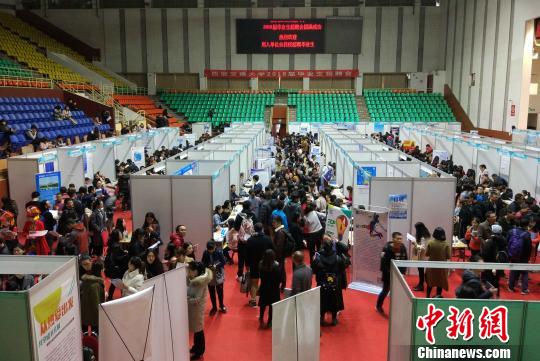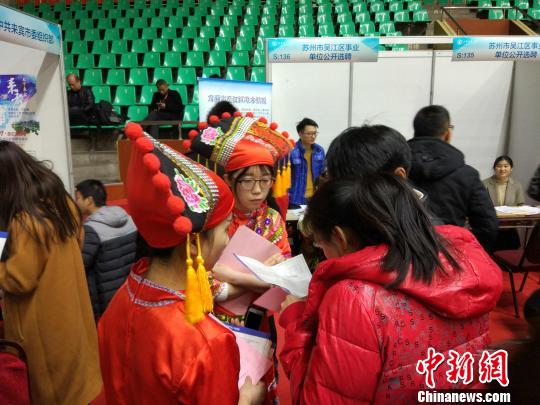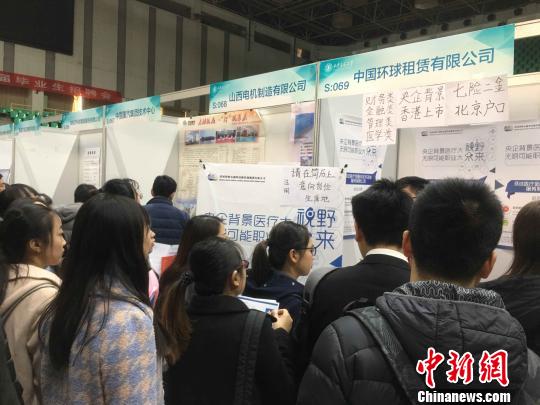Job hunting for post-90s college students: "soft" welfare or "hard index" for job hunting.

Zhongxin. com, Xi ‘an, November 23 (Cai Yan, Zhang Yichen) On the morning of the 23rd, Li Jianhua, a student majoring in industrial design at Chang ‘an University, squeezed out from the crowded recruitment venue, without handing out a resume in his backpack.
"If you want to find a job with good welfare, you can take a regular trip, take paid annual leave and so on. There are too few suitable ones!" In the past two months, Li Jianhua has run through three or four "unsuccessful" job fairs. "Work is a matter for the rest of your life, so you have to find happiness and meaning!"


Li Jianhua’s job-hunting experience is a microcosm of the employment changes of college students in China. For many post-90s job seekers, it is more important to satisfy their interests and realize the meaning of life than to pursue salary. On the 23rd, the reporter saw at the winter job fair for graduates of Xi ‘an Jiaotong University that 304 employers had released more than 14,000 jobs, which greatly exceeded the number of job seekers entering the market. However, due to the promotion mechanism, welfare subsidies, platform prospects and other issues, many college students who came to apply for jobs still "stayed put".
Several employers have read the ideas of post-90s job seekers, and marked "Solving Beijing Hukou", "Central Enterprise Background" and "Free Travel" in prominent positions in recruitment posters to attract people to come for consultation and submit resumes. According to feedback from many employers, fewer and fewer college students talk about salary, and they are generally more concerned about soft benefits such as "corporate reputation", "settling accounts", "paid annual leave", "employee travel", "rental subsidy" and even "options".

Yang Yun majored in public administration in Xi ‘an Jiaotong University. In her view, "five insurances and one gold", "transportation subsidy" and "holiday welfare" should be the "standard welfare" of enterprises, with little difference, but a perfect training and promotion system, an efficient and humanized management team and a corporate culture that encourages innovation are the key to consider the strength of enterprises.
"Soft benefits are actually an indirect salary embodiment, which is very attractive to job seekers. Enterprises are also constantly improving the welfare mechanism, enhancing the cultural atmosphere, and adapting to the changes in the concept of job hunting of the new generation of employees. " Huang Qi, personnel manager of a technology company, said.

The employment of college students has always been a hot issue of social concern. According to data from the Ministry of Education, there were about 7.95 million college graduates in 2017, 300,000 more than in 2016. In 2017, there were more than 330,000 college graduates in Shaanxi Province, and the market-oriented employment situation is still grim.
In this regard, Yang Yuan, a student of Xi ‘an Jiaotong University, said that graduates are prone to the phenomenon of unclear goals, unclear career plans and impetuous work. They should adjust their psychological status in a timely and reasonable manner, find their own position, and actively seek career guidance. Schools are particularly important for college students’ career planning education. Offering more relevant career planning courses, innovation and entrepreneurship training courses, holding career guidance activities and employment seminars can guide students to establish a correct concept of career choice and provide greater career space and opportunities.